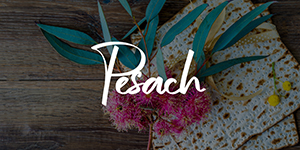
Pesach (Passover) is a celebration of redemption and freedom. It is celebrated as a remembrance of the freedom HaShem provided for the people of Israel at the Exodus. This is usually in the form of a Passover seder - a special meal - with many elements of food and drink that symbolize different aspects of God's redemption.
For believers in Messiah Yeshua, we also remember the redemption that He purchased for us with his blood at Passover so long ago. We celebrate the freedom we have in Him and worship Him for His goodness.
The feast of Pesach is also called the feast of Unleavened Bread, as it kicks off 7 days of eating only unleavened bread.
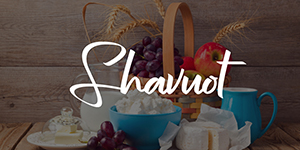
Shavuot (Pentecost) is a celebration of the giving of the Torah. It is the culmination of 50 days of counting the omer - counting up from the Shabbat of the first day of Unleavened Bread.
For believers in Messiah Yeshua, we also celebrate the giving of the Holy Spirit in Acts 2. We know that the outpouring of the Holy Spirit was the down-payment of the messianic era, which Yeshua came to initiate in part but will come in fullness at the end of days.
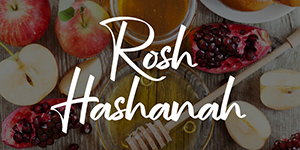
Rosh Hashanah, also called the Feast of Trumpets (Yom Teruah), is the first of the fall holidays. Rosh Hashanah means "head of the year" and is considered the anniversary of creation. This is why it is the start of the civil Hebrew calendar year. Since Rosh Hashanah memorializes creation, it is also a day we celebrate HaShem as King - King of all creation.
Rosh Hashanah is traditionally celebrated with pomagranates, apples, and honey. This symbolizes our hope for a sweet year, filled with God's favor and blessing. It is also celebrated with the blowing of trumpets or shofars, which have many meanings including announcing the entrance of a king.
Rosh Hashanah also begins the 10 Days of Awe - the 10 days leading up to Yom Kippur. These days are a time of introspection and making our lives right before the Lord and before others. We search our hearts and apologize to HaShem and to people in our lives whom we have wronged. Doing this begins our year with the right focus and prepares our hearts for Yom Kippur.
While the spring feasts were fulfilled by Yeshua in His first coming, the fall feasts will be fulfilled in His second coming. Many believe that because of the emphasis of the blowing of the trumpets on Rosh Hashanah, this holiday will be fulfilled by Yeshua's return in glory.
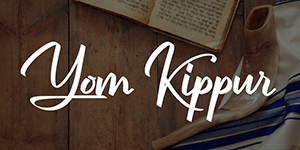
Yom Kippur, or the Day of Atonement, is the holiest day of the biblical calendar. It was the day that atonement was made in the temple for the sins of the people of Israel.
On Yom Kippur, the Ten Days of Awe culminate in a special time of prayer, repentance, and receiving the forgiveness that the Lord gives us. It is a day of somber repentance, and the only day of the year we are commanded to fast completely (Leviticus 23:26-32).
On Yom Kippur it is traditional to wear white, symbolic of how we stand before God forgiven. While we as believers in Messiah know that we do not need to annually seek atonement for our sin, it is important to regularly take stock of our lives and humble ourselves before the Lord. This is a beautiful and meaningful day to do that.
As a holy day, we fast from food and other pleasantries and focus the day on prayer, worship, and Scripture. We close this day with a breaking of the fast after sunset, rejoicing in the forgiveness that the Lord so freely offers!
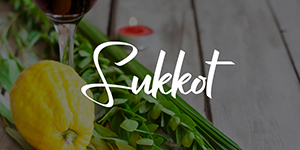
Closing out the fall holidays, Sukkot is a week-long festival which begins 4 days after Yom Kippur. It is also called, "The Time of Our Rejoicing" because it is the most joyful celebration of the year. HaShem commands that we celebrate and rejoice at this time, and it is truly a beautiful time of celebration after the soul-deep "house cleaning" of the 10 Days of Awe and Yom Kippur.
Sukkot is also known as the Feast of Tabernacles (sukkot means "tabernacles" or "booths"), and during this time we remember that HaShem tabernacled with His people in the wilderness. We build "sukkot" - temporary outdoor structures - where we hang out a lot during this week, eating and celebrating God's presence in our lives. Sukkot is a week-long holiday finished off by an eighth day called Shemini Atzeret.
This is also the time many Messianic believers celebrate the birth of Yeshua for many reasons. Most evidence that we have suggests that this was likely the time of His birth, and the theme of God dwelling with us fits the birth of Yeshua - Immanuel - in a very poignant and meaningful way. For a solid explanation of why we celebrate Yeshua's birth during this season, we encourage you to set aside a half hour to watch this teaching: When Was Yeshua Born?, by Hylan Slobadkin.
As a fall feast, this holiday has yet to be fulfilled, but because of the theme of HaShem dwelling with His people, many believe that it will be fulfilled when Yeshua reigns as King from the New Jerusalem.
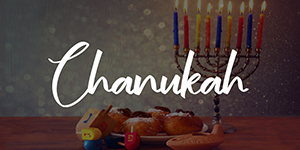
Chanukah (also spelled Hanukkah) is one of the most well-known Jewish holidays, but the only major one not mentioned in the Hebrew Scriptures. This is because the events of Chanukah took place after the Tanack (Hebrew Scriptures/Old Testament) were written.
Chanukah celebrates the miraculous deliverance of the Jewish people from the evil Antiochus of Greece and the bravery of the Maccabees. It also celebrates the rededication of the Temple, when the Maccabees got the Greecian army out of Jerusalem.
Chanukah is celebrated for 8 nights, by lighting an 9-branched menorah called a "Chanukiah." During these 8 nights, we remember and celebrate the bravery of the Maccabees and the deliverance HaShem provided for His people, and we rededicate ourselves to stand up for truth.
Chanukah was celebrated by Yeshua in John chapter 10, where it is referred to as the "Feast of Dedication" (Chanukah means "dedication).
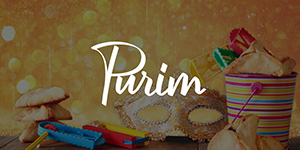
Purim is not a biblical holiday, in the sense that it wasn't a holiday created by God and given to mankind in the Torah. But it is a holiday prescribed for celebration in Scripture.
Purim is the celebration of the deliverance of the Jewish people in the days of Queen Esther. It is a celebration of boldness and courage.
Purim is often celebrated by dressing up in costume, reinacting the story of Esther, and reading the book of Esther.








